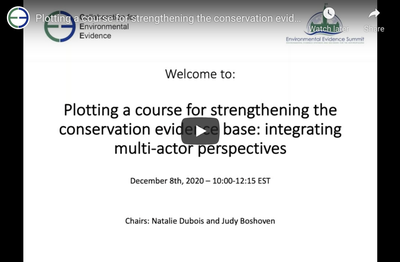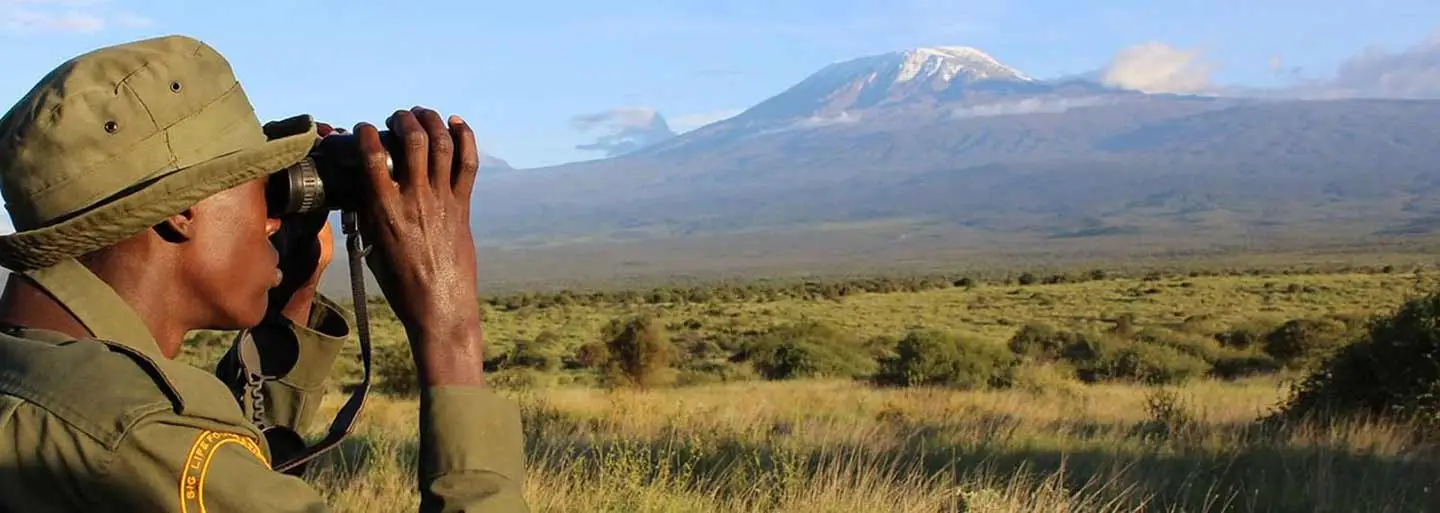Webinar: Plotting a Course for Strengthening the Conservation Evidence Base: Integrating Multi-Actor Perspectives

Published: 2020
Speaker Bios
Judy Boshoven, Foundations of Success
Judy is a Senior Program Officer at FOS where she helps practitioners, funders, and educators across the conservation community amplify their efforts to manage successful projects, demonstrate conservation impact, and influence key decision-makers. She gets most excited about her work when project teams use evidence to improve the effectiveness of their conservation strategies in tangible ways.
Sara Carlson, United States Agency for International Development
Sara is a Natural Resources Officer at the United States Agency for International Development (USAID) in the Office of Forestry and Biodiversity. An evolutionary biologist by training, Sara has worked at USAID for eight years where she leads efforts to better integrate research and evidence into the design and adaptive management of USAID biodiversity programs.
Samantha Cheng, American Museum of Natural History
Sam is a Biodiversity Scientist at the Center for Biodiversity and Conservation (CBC) at the American Museum of Natural History. Sam is a multidisciplinary conservation scientist who works across the conservation and development sectors to progress evidence-informed practice and policy. Sam coordinates CBC’s evidence synthesis activities as the first U.S. based center affiliated with the Collaboration for Environmental Evidence (CEE).
Cody Dey, Fisheries and Oceans Canada
Cody is an aquatic science biologist who works in the Great Lakes Laboratory for Fisheries and Aquatic Science. For the past two years, Cody has been leading research prioritization projects within the Canadian federal government, and developing approaches to plan and evaluate the production of scientific information for applied environmental management.
Natalie Dubois, Environmental Incentives
Natalie is a Senior Research Specialist helping EI’s international development and conservation clients strengthen evidence-based decision making in their environmental programs. For the past five years, she has provided technical assistance to support biodiversity programming at the United States Agency for International Development. In this role, she helps USAID’s Office of Forestry and Biodiversity develop approaches and tools to facilitate the use and generation of evidence as part of effective adaptive management.
Craig Leisher, The Nature Conservancy
Craig is the Director of Monitoring and Evaluations for TNC’s Africa Region where his work focuses on measuring socioeconomic and ecological outcomes from conservation initiatives. At TNC he led the development of a regional M&E system and designed a dashboard to communicate key management metrics for use in evidence-based decision making. He has particular interest in developing methods for measuring human well-being in a conservation context and integrating gender considerations into conservation projects.
Biljana Macura, Stockholm Environment Institute
Biljana is a senior research fellow at Stockholm Environment Institute based in Sweden. She is an environmental social scientist with a main research focus on the synthesis of robust evidence for decision-making in environmental policy and practice. She conducts systematic evidence syntheses on environment and development topics and works on the improvement of systematic review methods in the same field.



